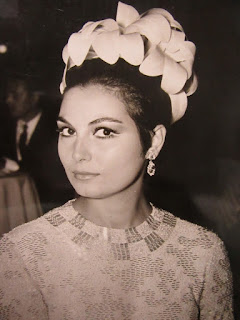Jacopo Sansovino – architect
Death of the designer praised by Palladio
Jacopo d’Antonio Sansovino, the sculptor and architect renowned for his works around Piazza San Marco, died on this day in 1570 in Venice. He designed the Libreria Sansoviniana in the Piazzetta, which was later praised by the architect Andrea Palladio as ‘the finest building erected since antiquity’. Sansovino had been born Jacopo Tatti in 1486 in Florence and was apprenticed to the sculptor Andrea Sansovino, whose surname he subsequently adopted. He was commissioned to make a marble sculpture of St James for the Duomo and a Bacchus, which is now in the Bargello in Florence. However, his designs for sculptures to adorn the façade of the Church of San Lorenzo were rejected by Michelangelo, who was in charge of the scheme. In 1529 Sansovino became chief architect to the Procurators of San Marco, making him one of the most influential artists in Venice. His first Venetian building was the Palazzo Corner della Ca’ Grande, a huge classical palace for one of the richest families in Venice. Sansovino designed the Loggetta and its sculptures adjoining the Campanile and statues for the Basilica of San Marco. He also helped rebuild many of the churches and palaces in Venice. Read more...
_________________________________________________________________
Senesino - operatic castrato
Sienese singer who worked with composer Handel
The acclaimed contralto castrato singer Senesino, who enjoyed a long professional relationship with the composer George Frideric Handel, died on this day in 1758 in Siena. During the 18th century, when opera’s popularity was at its height, the castrati singers - male singers castrated as boys to preserve their prepubescent vocal range - were the highest paid members of the cast and the likes of Carlo Broschi, who sang under the stage name Farinelli, Giovanni Carestini (“Cusanino”), Gaetano Majorano ("Caffarelli") and Gaspare Pacchierotti were the genre’s first superstars. Senesino could be added to that list. When he made his first appearance for Handel in his three-act opera Radamisto in 1720 his salary was reported as between 2000 and 3000 guineas, which today would be worth around £250,000 to £365,000 (€280,000-€400,000). Born Francesco Bernardi in 1686, Senesino took his name from his home town, Siena. His father was a barber in the Tuscan city. He joined the choir of Siena’s Duomo - the Cattedrale di Santa Maria Assunta - in 1695 and was castrated at the comparatively late age of 13. Read more...
__________________________________________________________________
Roberto Mancini - footballer and manager
Skilful player now highly successful coach
Roberto Mancini, a former Italy player and the current manager of the Italian national team, was born on this day in Iesi in Marche in 1964. Roberto Mancini enjoyed huge success with Internazionale in Italy and Manchester City in England. Mancini, an elegant and creative forward, was capped 36 times by Italy between 1984 and 1994. After a highly successful playing career, in which he was part of title-winning teams at Sampdoria and Lazio, he enjoyed immediate success as a manager, winning the Coppa Italia in his first season as Fiorentina boss in 2000. He repeated the feat in his second season at his next club, Lazio. Mancini then made his mark emphatically at Internazionale, guiding the Milan club to a club record three consecutive Serie A titles, as well as winning the Coppa Italia and the Supercoppa (a pre-season match between the Serie A champions and the Coppa Italia winners) twice. This made him the club's most successful manager for 30 years. While at Inter, he also set a Serie A record by winning 17 consecutive matches. He was out of football for a year after being dismissed by Inter in 2008, despite his domestic success. Read more…
___________________________________________________________________
Horace - Roman poet
Writer who ‘seized the day’ and left his vivid account of it
Quintus Horatius Flaccus, better known as Horace, died on this day in 8 BC in Rome. He had become a leading poet during the reign of the Emperor Augustus and acquired a farm near Rome which he made famous through his poetry. His Odes and his more informal Satires and verse Epistles vividly portrayed contemporary Roman society, with the background themes of love, friendship and philosophy. Horace’s career coincided with Rome’s momentous change from a republic to an empire and he became a spokesman for the new regime. He is said to have revealed far more about himself and his way of life in his writings than any other poet in antiquity. His most famous two words are ‘carpe diem’ – taken from his first book of Odes – which are usually translated as ‘seize the day’. Horace was born in 65 BC in Venusia in southern Italy, a town that lay on a trade route between Apulia and Basilicata. Horace’s father had been a slave but had managed to gain his freedom and improve his social position. He spent money on his son’s education and eventually took him to Rome to find him the best school. At the age of 19 Horace went to Athens to enrol in the Academy founded by Plato. Read more…
Home


























